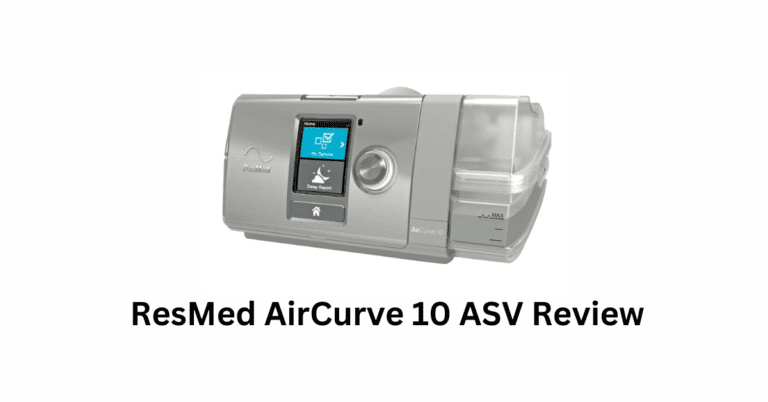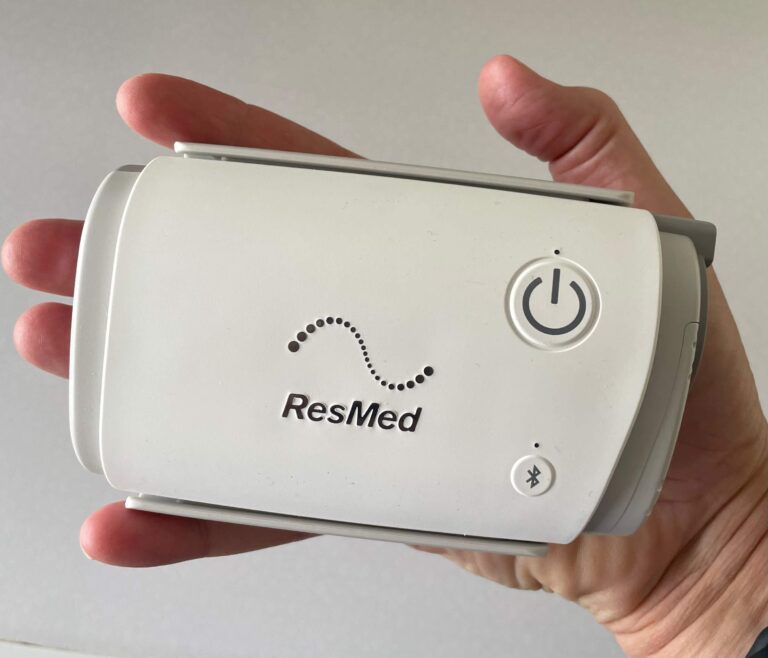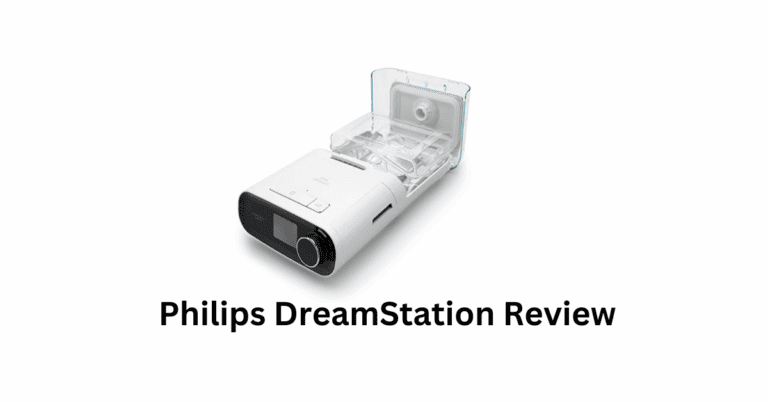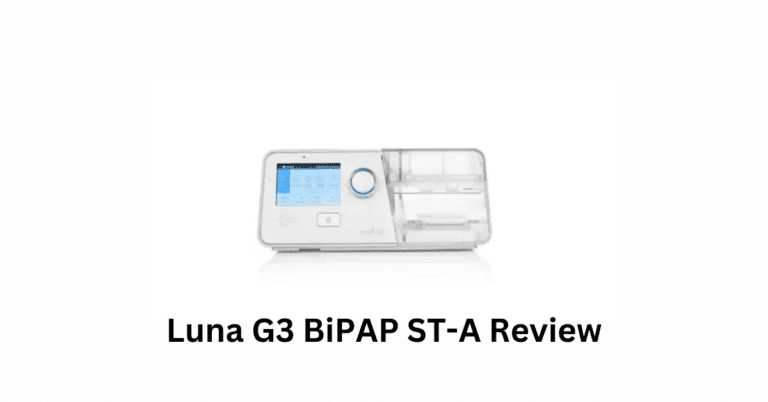How Does Auto CPAP Work? Everything You Need to Know
Jeremy Smith is a long-term CPAP user and sleep apnea advocate. After being diagnosed with severe obstructive sleep apnea, he created ByJeremySmith.com to help others navigate CPAP therapy through personal stories, gear reviews, and practical advice.
How does Auto CPAP work?
Auto CPAP, short for Automatic Continuous Positive Airway Pressure, adjusts the pressure it delivers throughout the night.
Instead of maintaining a constant pressure like standard CPAP machines, it uses clever algorithms to detect changes in your breathing.
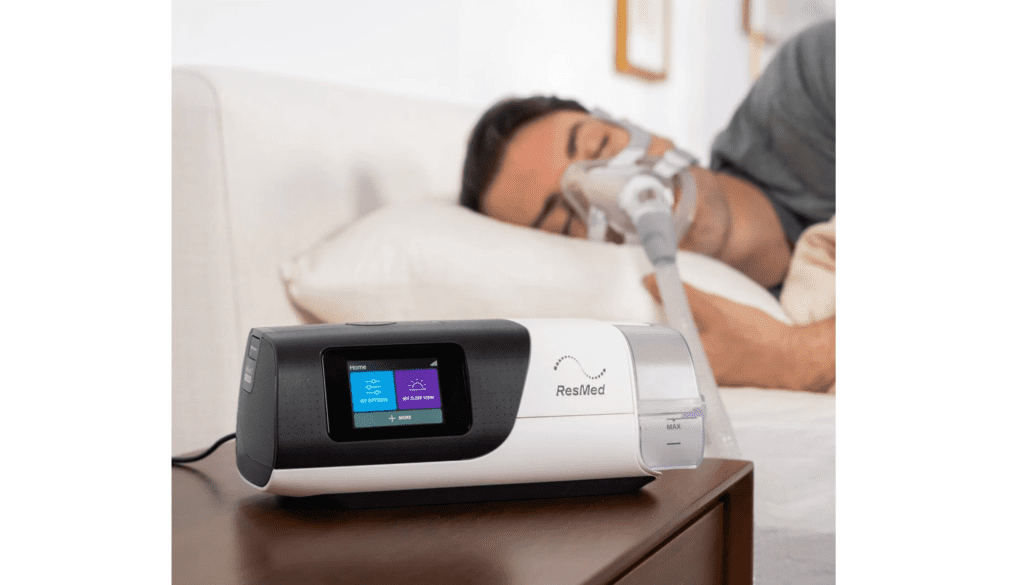
If your airway starts to collapse or shows signs of obstruction, the machine ramps up the pressure. When your breathing stabilizes, it eases back down.
This dynamic adjustment helps keep your airway open without delivering more pressure than necessary.
Getting an autoset machine was a no-brainer for me. I trusted the tech, and I grabbed a ResMed 10 straight away.
Why is Auto CPAP the best choice?
It responds to your needs in real-time
Your sleep position, the stage of sleep you’re in, or even nasal congestion can affect your airway.
Auto CPAP machines adjust accordingly, making therapy more personalized. This is especially helpful for people with variable pressure needs throughout the night.
Greater comfort
Lower average pressures mean more comfort. You’re less likely to experience pressure-related issues like dry mouth, aerophagia (swallowing air), or mask leaks.
That comfort can lead to better compliance, which is key to successful treatment.
Flexibility with long-term use
If your condition improves or worsens over time, an Auto CPAP will adjust.
That’s a huge plus compared to fixed-pressure machines that might require re-titration. It also makes traveling easier since you don’t need to recalibrate settings for different altitudes or environments.
What is the difference between CPAP and Auto CPAP?
A traditional CPAP delivers one set pressure all night, regardless of what’s going on with your airway. Auto CPAP, on the other hand, uses sensors and algorithms to adapt pressure within a preset range.
Think of CPAP like driving a car at one speed the whole time, while Auto CPAP adjusts like cruise control with traffic-aware features. This difference can have a big impact on sleep quality and comfort.
Looking to compare top models? Check out our best CPAP machines of 2025 guide.
What is the downside to Auto CPAP?
Cost
Auto CPAPs tend to be more expensive. But if you factor in the potential savings from fewer doctor visits or titrations, they can be worth it. Many insurance plans now cover Auto CPAPs if medically necessary.
Not ideal for everyone
Some people need very specific, fixed pressures due to complex sleep apnea or comorbid conditions like COPD or central sleep apnea. In those cases, a standard CPAP—or even a BiPAP—might be better. Always consult with your sleep specialist to find the best fit.
Data overload
These machines collect a lot of sleep data. That’s great for monitoring progress, but it can be overwhelming without the right support. Look for machines with user-friendly apps like myAir or DreamMapper.
How do I know if Auto CPAP is working for me?
Check your machine’s compliance reports. Most devices today come with apps or software that show your apnea-hypopnea index (AHI), leak rate, and usage hours.
I like to check mine weekly. Seeing improvements not only reassures me but also motivates me to stay consistent. AHI consistently below 5 is generally considered effective treatment.
If you notice lingering symptoms like excessive daytime fatigue, loud snoring, or frequent awakenings, consult your sleep specialist. You might need a pressure adjustment or a different mask.
Speaking of masks, comfort is key. Explore our guide to the best CPAP masks for sensitive skin if you’re struggling with irritation or leaks.
Insurance Authorizations for Sleep Studies
Getting an Auto CPAP often starts with a sleep study. Insurance providers usually require this to authorize treatment. Some now accept home sleep tests, which are more affordable and convenient.
Make sure to get pre-authorization if needed. This avoids delays and unexpected costs. Also, keep all paperwork and sleep reports handy for your DME supplier and insurance reviews.
For more tips, check out our step-by-step guide to getting a CPAP through insurance.
It actually works
From personal experience—and what I hear from readers—Auto CPAP can be life-changing. The improved sleep quality alone makes it worth trying. When your machine is tuned to your needs, everything from mood to memory improves.
Better oxygenation during sleep also helps reduce risks associated with untreated sleep apnea, like high blood pressure, heart disease, and even stroke.
Things Change
Your body, weight, and health conditions change over time. That’s why Auto CPAP is such a smart investment. It evolves with you, delivering the therapy you need night after night.
Weight gain or loss, new medications, or other health issues can all impact your sleep apnea severity.
Auto CPAP adjusts for these shifts in real time, keeping your therapy on track.
If you’re curious about mask upgrades or accessories, don’t miss our latest reviews on heated CPAP hoses and climate control systems.
Final thoughts
Whether you’re new to CPAP or looking to upgrade, Auto CPAP offers a flexible, comfortable, and effective treatment for obstructive sleep apnea. It’s especially helpful for people with changing pressure needs or those looking for a more intuitive therapy experience.
As someone with severe sleep apnea, I can say the switch to Auto CPAP turned my life around. Better sleep means better everything—from energy to focus to overall health.
Disclaimer: The content on this blog is for informational and educational purposes only and is not a substitute for professional medical advice. Always speak with your doctor or sleep specialist before starting, stopping, or changing any treatment or therapy related to sleep apnea or CPAP use.
